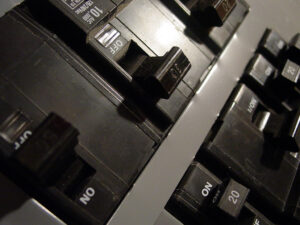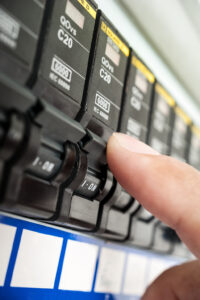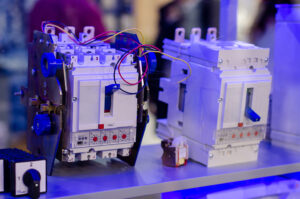
7 Advantages Of Hiring An Emergency Electrician
Electrical systems are not your typical DIY projects and need the help of a certified electrician to ensure everything is up to code and correctly installed. Today, more than 90% of households are connected to an electrical power supply, either solar or local power grid. No matter the connection, every home at one point or another requires the services of an electrician; this could be for an emergency, installation, or maintenance.
An issue such as a power surge or damaged outlet/switch can cause a lot of harm, leading to expensive repairs and, in some cases, injuries. It’s during such an emergency that you need the services of a professional electrician. Below is an overview of the advantages of hiring an emergency electrician.
Round-the-Clock Service
Regular inspection and servicing are excellent ways to avoid unexpected electrical emergencies. However, it’s best to remember that an emergency can occur at any time due to several factors. Some of these issues can happen late at night or on weekends when most firms are closed. Emergency service is the best response to these situations as they offer round-the-clock services.
Emergency electricians respond to customer calls at any time of the day. The best part about working with them is their response time; you don’t have to wait long for a professional to respond to your emergency. With these services, you don’t have to worry about staying in the dark for long or having your equipment fixed.
Skilled Experts
Companies offering emergency electrical services work with certified electricians with in-depth knowledge of electrical installations, equipment, and how to address arising issues. Homeowners are often encouraged to note down their electrical problems to help the electrician diagnose and solve the problem. However, this is often not necessary for emergency response teams as they are experienced and skilled in addressing a wide range of issues.
Electricians from Mister Sparky of Wilmington are certified, meaning they are trained and tested to gauge their understanding of electrical components and issues. When hiring an electrical emergency service, you are given access to a pool of skilled experts.
Safety
Electrical issues have several risks, including electrocution, fires, and burns. When handled carelessly, an electrical issue can escalate and cause expensive repairs or even fatalities. A problem may seem small at first but could be a precursor to something major, hence the need to observe the highest level of safety.
Certified electricians are trained to secure the work area and take necessary precautions to protect themselves while working on electrical equipment. Aside from the training, these professionals have safety gadgets, some of which you may not have or know how to use during an emergency. Hiring an electrician means leaving the job to an expert to ensure your safety and those around you.
Insurance and Warranty
Certified electricians are required by law to have an insurance policy to cover work-related issues, including injuries and damage. With this coverage, homeowners are absolved of any financial responsibility related to a botched job or work-related injuries. An electrician’s insurance policy may also come in handy when filing for a claim from your home insurance provider. Some insurance companies can refuse to settle a claim without the necessary documentation.
Emergency electricians offer warranties for services delivered. Customers are able to enjoy the benefit of free post-service or replacements in case of a botched job. These professionals are also able to point out your warranty benefits for electrical installations and appliances; this way, you don’t have to pay a lot for cases covered under your warranty.
Honest, Upfront Pricing
One of the main challenges of hiring an emergency electrical expert is finding an electrical service offering honest and upfront pricing. Some firms are known for inflating prices or withholding details of the cost of their services until after the job. However, with a certified emergency electrical service, you are provided with honest and upfront pricing for your problem.
The best part is that these professionals will assess the situation and walk you through the entire process; this way, you can know what you are paying for. Firms such as Mister Sparky of Wilmington offer a price list for all their services; this way, customers can approximate the cost of the service.
Cost Saving
Emergency electrical experts are known to charge more than regular electricians because of their availability and response time. However, the high cost of hiring an emergency service may save you from greater losses. An electrical emergency can manifest into expensive repairs or replacement, especially when left unattended for long.
By addressing the issues, you can prevent more damage. For example, addressing a burning smell from your electrical installations can prevent fires that often lead to extensive damage. Aside from the preventive measures, emergency electricians address the problem at the root cause, saving you from future issues.
Latest Electrical Equipment
Electrical issues require specialized tools to ensure the work is safely and correctly done. Some of these tools are expensive and may require specialized training to use. A professional electrician has the latest tools and technology to handle the latest electrical installations. With these tools, they can effectively diagnose and repair your problems.
Emergency electrical experts are also trained in the latest techniques in electrical installations; this means they are able to use their equipment to update your electrical installations. This way, they can operate optimally. Take advantage of their vast knowledge and experience to improve the efficiency and performance of your home’s electrical system and enjoy peace of mind.
Enjoy Quality Services at Mister Sparky of Wilmington
Electrical installations and repairs are a dangerous endeavor that requires the expert knowledge of a trained and certified electrician. No matter the nature of your emergency, it’s advisable to have a professional look at the problem instead of approaching it as a DIY.
At Mister Sparky of Wilmington, we pride ourselves on the best electrical services. Aside from emergency services, we offer a wide range of electrical services, including installations and repairs. Contact us for more on our services through our customer service.
See our most recent blog on this topic here.
Find out our service area here.
Photo By Elizabeth Foster at Shutterstock
Power Up Your Safety: When To Call An Expert For Home Electrical Services
Electricity is a modern convenience that we often take for granted. From charging our phones to powering our homes, it’s an essential part of daily life. However, when electrical problems arise, they can pose serious safety hazards. That’s why it’s essential to know when to call an expert for home electrical services.
Common Electrical Issues that Require Professional Attention
Frequent Circuit Breaker Tripping
Frequent circuit breaker tripping is a common issue caused by various factors. One possible cause is an overloaded circuit, which occurs when too many electrical devices are connected to a single circuit. This can also happen when the circuit is not designed to handle the electrical load required by the devices.
It’s essential to call an expert for home electrical work to address this problem because frequent circuit breaker tripping can indicate a severe safety hazard. An expert electrician can diagnose the root cause of the issue and provide safe and effective solutions to ensure that your electrical system is functioning properly.
Flickering Lights
Flickering lights can indicate a more serious electrical issue, such as an overloaded circuit, loose connections, or faulty wiring. If you ignore blinking lights, the underlying problem can escalate, potentially leading to an electrical fire, shock, or damage to your electrical system.
Ignoring flickering lights can also put your loved ones at risk, especially if they have medical conditions that require uninterrupted power. Additionally, it can cause damage to your appliances and electronics, reducing their lifespan and increasing the likelihood of costly repairs or replacements. If you notice flickering lights in your home, it’s vital to seek the help of an electrical expert to identify and address the underlying issue.
Burning Smell Coming from Outlets or Appliances
There are several reasons why a burning smell could be coming from your outlets or appliances. It could be due to faulty wiring, overloaded circuits, damaged electrical components, or even a short circuit. Ignoring the problem could lead to electrical shock, electrical fires, and even explosions.
It’s important to call an electrical expert if you notice a burning smell coming from your outlets or appliances. An experienced electrician can identify the source of the problem and fix it before it becomes a more serious issue. They can also inspect your home to ensure that your electrical system is up to code and safe to use.
Power Outages in Specific Areas of the House
If you’re experiencing power outages in specific areas of your house, it’s important to call an expert. Various factors, such as faulty wiring, damaged circuits, or a malfunctioning electrical panel, could cause this issue.
An electrician can thoroughly inspect your electrical system, identify the source of the problem, and take the necessary steps to fix it. They can repair or replace damaged wiring or circuits, install a new electrical panel, or recommend other solutions based on your specific needs. Ignoring this issue could lead to further electrical problems or even a potential electrical fire.
Buzzing or Crackling Sounds from Outlets or Appliances
When electricity flows through damaged or faulty wiring, it can cause the wires to vibrate. These sounds can be dangerous as they could indicate an electrical problem that could lead to electrical fires or electrical shock. Over time, the heat generated by the electrical current can cause damage to the wiring or appliance, which could increase the risk of electrical hazards.
Calling an electrical expert is crucial if you hear buzzing or crackling sounds from your outlets or appliances. An experienced electrician can identify the source of the problem and take necessary steps to fix it.
Electrical Shocks when Touching Appliances or Switches
If you experience electrical shocks when touching appliances or switches in your home, you must immediately call an electrical expert. Electrical shocks could indicate a serious problem with your home’s electrical system, such as faulty wiring or damaged circuits.
These electrical shocks can be dangerous as they could lead to serious injury or even death. When electrical current flows through your body, it can cause damage to your tissues, muscles, and organs, resulting in burns, muscle contractions, or even heart failure.
Non-Functional Electrical Outlets
If you have electrical outlets in your home that aren’t working, it’s important to call an electrician for help. Non-functional outlets can be caused by faulty wiring or damaged circuits, posing a serious risk of electrical hazards or even a fire. An electrician can thoroughly inspect your home’s electrical system, identify the source of the problem, and take the necessary steps to fix it. Don’t ignore this issue; prompt action can ensure your home’s electrical system is safe and reliable.
Installation of New Lighting Fixtures or Ceiling Fans
When installing new lighting fixtures or ceiling fans, hiring a professional electrician for home electrical services is crucial. Attempting to do it yourself can result in serious injury or damage to your home’s electrical system. Expert electricians have the necessary training, knowledge, and tools to ensure a safe and proper installation that meets all safety codes and regulations. They can also help prevent future electrical problems and advise on the best fixtures or for your needs.
Malfunctioning Smoke Detectors
A malfunctioning smoke detector can put your home and family at risk, so calling an expert for electrical services is crucial. Expert electricians can diagnose and fix various issues that may cause a smoke detector to malfunction, such as dead batteries, faulty wiring, or detector malfunction. They can also ensure your smoke detectors are properly installed and positioned for maximum effectiveness and provide advice on the best types of detectors for your needs.
Ensuring the safety of your home and family should be a top priority, and this includes taking care of your electrical system. If you’re experiencing any of the issues discussed, it’s important to call an expert for electrical services. Don’t hesitate to contact Mister Sparky of Wilmington for all your electrical needs and enjoy the peace of mind of having a safe and reliable electrical system.
See our most recent blog on this topic here.
Photo By Fox_Ana at Shutterstock
Different Circuit Breakers An Electrician Can Use For Your Home’s Electrical System
Circuit breakers are safety devices for whatever device uses electricity. The fixtures act as third parties within the complex and dangerous electrical wiring system. However, an electrician can use many breakers to protect your home and property, including MCCB, RCBO, MCB, RCCD, and RCD. Installing either in your home’s electrical system will protect your appliances from damage caused by power surges and electrical anomalies. While these devices essentially break the electrical circuits, they are designed with particular applications in mind. It is these specific functionalities that make each breaker different from the others. However, RCDs, RCCBs, and RCDs are typically used in low currents, while MCCBs are used for high currents that might even reach a thousand amps.
What Are MCCBs and MCBs?
Many homeowners confuse the differences between these two. Although they both are circuit breakers, primary differences make them uniquely qualified for very distinct applications.
Miniature Circuit Breakers (MCBs)
A miniature circuit breaker is an electromechanical device that automatically switches the circuit off if it detects an anomaly. MCBs can easily sense overcurrent arising from short-circuiting. These miniature circuit breakers have very simple operating principles. They also feature two contacts— a movable and a fixed one. Whenever the current suddenly increases, the movable contacts become disconnected from fixed contacts, opening the circuit and disconnecting it from the power mains. These breakers also feature four pole options.
Molded Case Circuit Breaker (MCCB)
This is also a protective device that prevents the overloading of the circuit. MCCBs feature a switch operated manually. It is this switch that trips the circuit. MCCBs have 2 arrangements— one for overtemperature and the other for overcurrent. Further, this breaker features a bimetallic contact that expands and contracts depending on temperature changes. Its contacts allow the current to flow through the circuit in normal operating conditions.
But whenever the current increases past the preset value, the contacts warm and expand to the point they open. This makes the circuit disconnect from the main power supply, protecting your electrical appliance or equipment from damage.
Similarity Between MCCB and MCB
While the two are different in some ways, they have rather common features. To begin with, both MCBs and MCCBs protect your appliances. They both sense and protect the electrical circuit from overcurrent and short-circuiting. Additionally, electricians install them mostly in low-voltage or low-tension circuits.
Differences Between MCCB and MCB
Capacity is the main difference between MCCBs and MCBs. Miniature Circuit Breakers are rated under 100 amps with an interrupting rating below 18000 amps. Additionally, their trip features aren’t as adjustable because they primarily cater to low-power circuits. Conversely, Molded Case Circuit Breakers are rated between 10-2500 amps depending on the application. Their interrupting rate ranges between 10,000-200,000 amps. Additionally, the MCCBs have an adjustable trip element for advanced models.
What Is RCCB or RCBO or RCD/ RCB?
Residual Current Breaker with Over-Current or RCBO
This circuit breaker is a blend of the functionalities of a Miniature Circuit Breaker and an RCD/RCCB. Whenever there is an electrical current leakage, an RCBO will trip the entire circuit. Consequently, the internal thermal/magnetic circuit breaker parts will trip the electronic device whenever the circuit experiences an overload.
Residual Current Circuit Breaker or RCCB
This breaker can also be called an RCD (Residual Current Device) or RCB (Residual Current Breaker). RCCB refers to an electrical device that disconnects an electrical circuit immediately after detecting a current leakage. In contrast to MCCBS and MCBs, RCCBs protect human beings against electrical shock and electrocution from direct contact. So, if you realize you are dealing with electrical shocks, you should consult an electrician about using this breaker.
RCCBs and RCBOs are residual current electrical protection devices. They achieve this by monitoring the current flow in the neutral line. In a healthy circuit, the line current flow equals the return flow along the neutral. But the return flow sometimes might differ from the line current flow, especially when there is an electrical abnormality. Either residual current device senses such an eventuality and immediately interrupts the circuitry.
Similarity RCD and RCBO
To begin with, both the RCBO and RCD usually are installed in a fuse box, also called a breaker panel or a consumer unit. Further, both are protective devices that ensure your electrical appliances don’t suffer from current leaks.
What Is the Difference Between RCDs and RCBOs?
Residual Current Devices, or RCDs, can protect against residual currents, earth arc faults, and electrical shocks. In contrast, RCBOs can do all an RCD does and protect the electric circuit from power overloads and short-circuiting. Essentially, RCBOs are a combination of RCCB and MCB. So, if you are looking for a breaker that is all round (protects both you and your appliances), then you should consult your electrician about installing an RCBO.
How Do MCBs and RCDs Differ?
When a professional installs an RCCB or RCD in your breaker panel, you can be certain that your electrical circuit is protected against earth arc faults. On the other hand, Miniature Circuit Breakers don’t have the functionality to protect against ground faults. While a Residual Current Device protects humans from electrical shocks and electrocution, a Miniature Circuit Breaker doesn’t. MCBs feature four pole options (1-4). On the other hand, Residual Current Devices have 3 poles (2-4), meaning they don’t have the single-pole option. Finally, while RCDs are generally used in homes, the Miniature Circuit Breakers can be used in other industries.
Confused on Which Breaker to Choose?
Circuit breakers are critical devices that ensure your wiring systems remain intact. As you can see from the above, there are many types of breakers, and each differs. This means that every breaker is made with a particular application in mind. Are you confused about which circuit breaker to choose? Contact us at Mister Sparky of Wilmington. Our licensed and seasoned electrical technicians will help you choose and install the perfect unit at home.
See our most recent blog on this topic here.
Photo By creischl at istock
Addressing Reasons Why That AFCI Breaker Keeps Tripping With Your Reliable Electrical Services Provider
Arc Fault Circuit Interrupters (AFCIs) or arc fault breakers are safety devices designed for detecting, responding, and guarding against faulty connections that cause sparking or arcing. The NEC requires that AFCI breakers be installed in all new homes and constructions as they offer superior safety than standard breakers. Thus, you must include AFCI installation in electrical wiring, installation, and other electrical services. They ensure that your home is safe from issues such as electrical fires. Unfortunately, the AFCIs are highly susceptible to tripping, which can be annoying.
Why Do Your AFCIs Keep Tripping?
Unlike the other breakers, AFCIs use sensors for detecting electrical leaks, which can easily create overheating resulting in a fire. Like with any other electrical device, there are several probable causes of malfunctioning, such as overloaded circuits, mold, dampness, wear and age, appliance incompatibility, damaged AFCI breaker, or broken insulation. Below is a detailed explanation of the reasons that cause the tripping of your AFCIs.
Overloaded Circuits
Overload trips are caused by the circuit carrying a higher current than it was initially designed to handle. This is particularly common when high-energy drawing appliances are plugged into a circuit with too low power. Like other circuit breakers, AFCIs trip whenever current loads draw more power than a circuit is designed to handle.
Dampness or Mold
Moisture is the other factor that may cause short-circuiting in the AFCI breaker, resulting in tripping. For this reason, if you realize that there’s excessive moisture in the air at your home, you should install a dehumidifier.
Broken Insulation
The other reason why the arc fault circuit interrupter constantly trips is because of damaged or broken insulation. The insulation around electrical wires may peel off because of old age or even be eaten away by rodents. When the insulation around the electrical wires is damaged, the neutral and hot wires may come into contact, resulting in an electrical arc. The AFCI breakers are generally equipped with sensors that detect the distinct electrical signature of the arc, which differs from the normal flow of current in the circuit. Whenever the AFCI detects the arc, it will trip and interrupt the electricity flow in your home.
This arc generates high temperatures, which may ignite nearby flammable materials such as paint thinners, gasoline, and petrol, among other flammable liquids and gases. Hence, you shouldn’t store such near a breaker panel or electrical outlet. Thus, AFCIs are a critical safety measure that helps prevent electrical fires from igniting. Therefore, an electrical services provider should come for wiring inspection and maintenance. They will replace the wiring when they realize that the insulation around the wiring is peeling off.
Device and Appliances incompatibility
Device or appliance incompatibility is the most common reason arc fault breakers trip. Power tools, heaters, fluorescent lighting, microwaves, and treadmills will produce mechanical arc patterns that the AFCI breaker will detect as electrical arcs, resulting in AFCI breaker trips.
Poor Connections
Damaged insulation, exposed conductors, or even loose wires can allow high amounts of current flow via the circuit, making the arc fault breaker trip. Further, if the wires aren’t hooked up correctly to the arc fault breaker, its internal sensors won’t be able to detect appropriate arc patterns. Thus, it will keep falsely tripping. Poor AFCI breaker connection also can cause overheating, making it trip. Have you experienced this repeatedly? You should have an electrician come for electrical services such as inspections and repairs.
Age and Wear
With age, wires become increasingly vulnerable to failure because of deterioration or corrosion. The old wiring might get too brittle and eventually crack, resulting in voltage leaks that could trip the AFCI breaker. With time, this may create an electric arc that triggers the breaker.
Damaged AFCI Breaker
Though not common, it’s also possible for the arc fault breaker to suffer damage from circuit overloads and multiple overloads, leading to a false trip. If the breaker is outdated, it also might not operate properly, resulting in regular nuisance tripping. The best way of ensuring your home is safe is to fix any present wiring problems, replace the aged electrical parts, and clean any corroded contacts that could easily cause an AFCI breaker malfunction.
How to Stop AFCI Breaker from Tripping
Although it’s possible that most of that tripping in your AFCI breaker is a disturbance and isn’t an emergency, it is still critical that you identify the causes and undertake the necessary actions to address it. Left unchecked, the arc fault breaker issues may escalate quickly, resulting in appliance damage, fires, and electrical shocks. To stop the AFCI breaker from tripping regularly, you should enlist the help of an electrical services provider.
When the electrician comes to your home, they will inspect the wiring to identify possible reasons why the AFCI breakers are tripping. They might ask you questions such as when does the breaker trip? Does it trip after you plug in an appliance such as a microwave, air conditioner, treadmill, or hair dryer? This is to help the technician narrow down the potential reasons. After determining why the unit is tripping, the professional will make the required repairs, such as tightening loose connections or replacing the old, damaged wires to fix the cause of the arc fault. However, you should always ensure the electrical load you plug in is within the AFCI breaker’s capacity. Additionally, ensure you regularly service the electrical system to avert issues such as electrical fires.
If the AFCI is constantly tripping, you should enlist an electrician to inspect the electrical wiring and repair the loose connections. If the tripping persists, the AFCI may be faulty or outdated and require replacing. Do you need electrical wiring, inspection, repair, replacement, or maintenance? Our licensed, experienced, and skilled professionals at Mister Sparky of Wilmington can help. Contact us today to book an appointment for any electrical work.
See our most recent blog on this topic here.
Photo By Nor Gal at Shutterstock
Benefits And Types Of Automatic Transfer Switches An Electrician Can Pair Your Backup Generators With
Buying a backup power generator and not installing or pairing it with an ATS (Automatic Transfer Switch) is akin to paying for an AC without installing a thermostat. An ATS works similarly to an AC thermostat, except rather than monitoring indoor temperatures, it monitors utility to power your home receives from the grid. You don’t have to turn on the backup generator when the electricity goes out. When an electrician installs an ATS at your home, the backup generator automatically kicks in during a power outage.
What Is an ATS?
An ATS or Automatic Transfer Switch is a device that acts like the brain between secondary and utility power. It kicks in when there is a power interruption, switching over the backup power source, and controls the system with little to no input from the homeowner.
How Do Automatic Transfer Switches Work?
An automatic Transfer Switch is generally installed between your home’s electrical circuits and the secondary power generator to supply electrical power via the breakers. The switch within the ATS selects between generator power and utility power. During power transfer to the generator from the utility, the existing utility connection is broken before connecting to the generator, and reverse also holds.
Such a break-before-make kind of connection prevents the back feeding of generator power to the utility power lines. It also protects the generator from damage caused by the utilities. Some ATS feature circuit breakers assigned different loads at home. For instance, if the generator installed at your home can’t handle your entire home’s load, but you want to run your air conditioner or refrigerator, you need a load center ATS.
Types of Automatic Transfer Switch Systems
Below are the four types of Automatic Transfer Systems that you can choose from to help switch between primary and secondary power sources;
Open Transition ATS
The break-before-make or open transition switch is used in electrical systems that comfortably handle a brief power interruption when switching to backup power from utility power. Although this delay is usually less than a second, it allows for a seamless transfer while ensuring nobody is at risk at the utility power company or your home. A variation of this automatic transfer system called a Programmed Transition Switch pauses between the generator and utility power. Such a move allows the residual voltages in the circuit to decay before the power switches to back up eventually.
Closed Transition ATS
These transition systems are used in spaces where even a minor power interruption is not tolerated. This automated switching system features an internal system that allows for the utility and secondary power sources to be on simultaneously and also allows seamless switchover, which maintains safety standards. Closed transition ATS systems are more expensive and complicated than open transition systems.
Soft Loading Transfer Switch
This ATS is similar to closed transition ATS. However, depending on the situation, it can adjust the load amount it can handle. Such a dynamic capability comes at an additional cost, allowing businesses greater flexibility against situations needing backup power.
Bypass Isolation ATS
Bypass Isolation ATS is the most complicated system, albeit with the highest capability of all the ATS systems an electrician can install at home. It comprises two systems that run in parallel, allowing for testing, inspection, and maintenance to be carried out while in use. The setups that involve Bypass Isolation ATS systems are typically used in sensitive applications like telecommunications, critical life systems, and air traffic control systems.
Why Do You Need an ATS?
Do you need a continuous power-yielding mechanism that will operate even without requiring your input? Then you should install an ATS at your home. An Automatic Transfer Switch is an essential asset for those living in areas where the power grid is failure-prone. Whenever you experience energy shortages or brownouts, you want a dependable failsafe which will get you through such a stressful and demanding situation. An Automatic Transfer Switch doesn’t cover the need for an alternate power generator. Regardless, provided you have a secondary power generator, the ATS eliminates the need to activate it manually.
Benefits of Installing an Automatic Transfer Switch at Your Home
A transfer switch greatly benefits your home or business, increasing productivity and assurance. When you have an electrician install an ATS that meets your needs, you will gain the benefits below;
Power Reliability
If you have a power blackout, your business comes to a stall without a backup source. Power blackouts also mean that if you had stored food in a freezer or refrigerator, it would most likely go bad. This is not forgetting the impacts power outage would have if you had a family member on life support machines that rely on grid power. While a generator can be essential for mitigating this, without an ATS, you will have to switch it on manually.
Safety
Electricity is dangerous, and handling any power source can have detrimental impacts. You can be injured, electrocuted, or harmed when you try to manually turn on the secondary power generator after a power outage. With a transfer switch, you don’t have to worry about such harm as the system will do it all by itself. The ATS will switch on the generator within a second after the outage.
Simplified Operations
When an electrician installs an ATS and connects it between the utility and backup power source, you don’t have to worry about anything. This is because the controller automatically will turn on the backup power generator when it detects a power outage. Whether a solar or diesel-powered generator, the ATS will kick in and turn it on to ensure your operations aren’t interrupted by a power outage.
Are you looking to install either of the above types of ATS? We can help. Contact our able electrical technicians at Mister Sparky of Wilmington today to book an appointment for ATS installation.
See our most recent blog on this topic here.
Photo By Lutsenko_Oleksandr at Shutterstock
Check out this tip!





